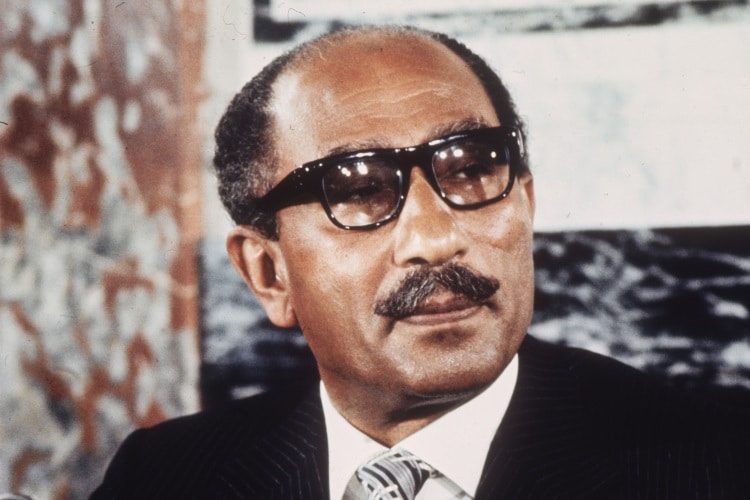Harmony of Peace: The Anwar El-Sadat Symphony

Anwar El-Sadat (25 December 1918 – 6 October 1981) was an Egyptian politician. Anwar El-Sadat was awarded the Nobel Peace Prize in 1978.
Life and Career
Anwar El-Sadat was born on 25 December 1918, in Mit Abou El-Kom, Egypt.
He came from a modest background and received a basic education in his early years. Later, he joined the Royal Military Academy in Cairo, where he developed his passion for politics and nationalism.
Anwar El-Sadat’s military career played a significant role in his early life. He joined the Free Officers Movement, a group of nationalist military officers, which later led to the Egyptian Revolution of 1952. This revolution resulted in the overthrow of King Farouk and the establishment of a republic. Gamal Abdel Nasser emerged as the leader of Egypt, and Sadat became his close associate.
Sadat held various government positions in the Nasser regime, including Minister of State, and Vice President, and eventually, in 1969, he succeeded Nasser as the President of Egypt after Nasser’s death. As president, he initiated a series of political and economic reforms, which included opening up the Egyptian economy and pursuing the “Infitah” (Open Door) policy.
One of the most notable events during Sadat’s presidency was the 1973 Yom Kippur War (also known as the October War) against Israel. Sadat’s decision to launch a surprise attack on Israeli forces in the Sinai Peninsula was a bold move aimed at regaining territory lost during the Six-Day War of 1967. The conflict led to a ceasefire and eventual peace negotiations, which would have a profound impact on Sadat’s legacy.
In 1978, under the mediation of U.S. President Jimmy Carter, Sadat and Israeli Prime Minister Menachem Begin participated in the Camp David Accords, a series of negotiations that resulted in the Egypt-Israel Peace Treaty in 1979. This historic treaty marked the first time an Arab country officially recognized Israel, and it led to Sadat and Begin jointly receiving the Nobel Peace Prize in 1978.
Anwar El-Sadat was assassinated by a group of Islamic fundamentalists on 6 October 1981, in Cairo, Egypt.
Award and Legacy
Anwar El-Sadat was awarded the Nobel Peace Prize in 1978 for his role in the Camp David Accords and the subsequent Egypt-Israel Peace Treaty. He shared this prestigious honor with Israeli Prime Minister Menachem Begin. The Nobel Peace Prize recognized their efforts in negotiating and achieving a historic peace agreement between Egypt and Israel, which marked a significant step towards peace in the Middle East.
Anwar El-Sadat’s legacy is complex and multifaceted. He is remembered for his role in the peace process with Israel, which brought stability to the region and earned him international acclaim. However, within Egypt, his presidency faced criticism and challenges due to economic hardships and the suppression of political dissent. Nevertheless, his willingness to make bold moves for peace has left an enduring impact on the Middle East and the world, and he remains a symbol of leadership and diplomacy.
Anwar El-Sadat remains a symbol of leadership and diplomacy for his efforts to bring about peace in the Middle East. His legacy continues to inspire diplomatic efforts and negotiations in the region.
Observer Voice is the one stop site for National, International news, Sports, Editor’s Choice, Art/culture contents, Quotes and much more. We also cover historical contents. Historical contents includes World History, Indian History, and what happened today. The website also covers Entertainment across the India and World.

